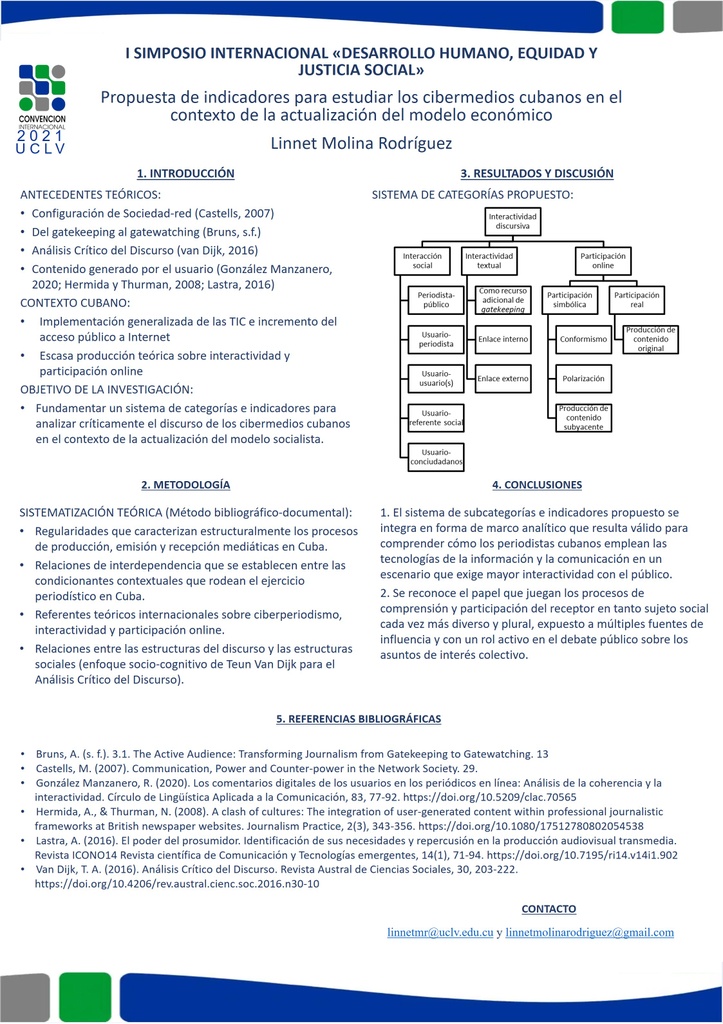Executive Secretary

Simposio Internacional “Desarrollo Humano, Equidad y Justicia Social"

La investigación se propone fundamentar un sistema de categorías e indicadores para analizar el discurso de los cibermedios cubanos en el contexto de la actualización del modelo económico. A través del método bibliográfico-documental, se determinan las principales regularidades que caracterizan estructuralmente los procesos de producción, emisión y recepción mediáticas en el ciberespacio cubano y se justifica la pertinencia de establecer un sistema de categorías e indicadores que resulten integradores en su aproximación al objeto de estudio. Entre los principales aportes de la investigación, destaca la propuesta de la interactividad discursiva como categoría de análisis que da cuenta de procesos inherentes tanto al emisor como al usuario. Se concibe el discurso periodístico de los cibermedios como un tipo de discurso complejo, en el que convergen dos tipos de textos: el mensaje periodístico y los comentarios de los usuarios sobre la noticia digital; y en el que varían los roles de los participantes (periodistas y usuarios) en función del tipo de intercambio comunicativo en el que intervienen. El sistema de subcategorías e indicadores propuesto se integra en forma de marco analítico que resulta válido para comprender cómo los periodistas cubanos emplean las tecnologías de la información y la comunicación en un escenario que exige mayor interactividad con el público; al tiempo que incorpora los procesos de comprensión y participación del receptor en tanto sujeto social cada vez más diverso y plural, expuesto a múltiples fuentes de influencia y con un rol activo en el debate público sobre los asuntos de interés colectivo
The research aims to establish a system of categories and indicators to analyze the discourse of Cuban cybermedia in the context of updating the economic model. Through the bibliographic-documentary method, the main regularities that structurally characterize the processes of media production, broadcast and reception in Cuban cyberspace are determined and the relevance of establishing a system of categories and indicators that are integrative in their approach to the object is justified. Among the main contributions of the research, stands out the proposal of discursive interactivity as a category of analysis that accounts for processes inherent to both the journalist and the user. The journalistic discourse of cybermedia is conceived as a complex type of discourse, in which two types of texts converge: the journalistic message and the comments of the users on the digital news; and in which the roles of the participants (journalists and users) vary depending on the type of communicative exchange in which they both participate. The system of subcategories and indicators is integrated into an analytical framework that is valid for understanding how Cuban journalists use information and communication technologies in a scenario that requires greater interactivity with the public; while incorporating the processes of understanding and participation of the receiver as an increasingly diverse and plural social subject, exposed to multiple sources of influence and with an active role in the public debate on matters of collective interest
Sobre el ponente

MsC. Linnet Molina Rodríguez
